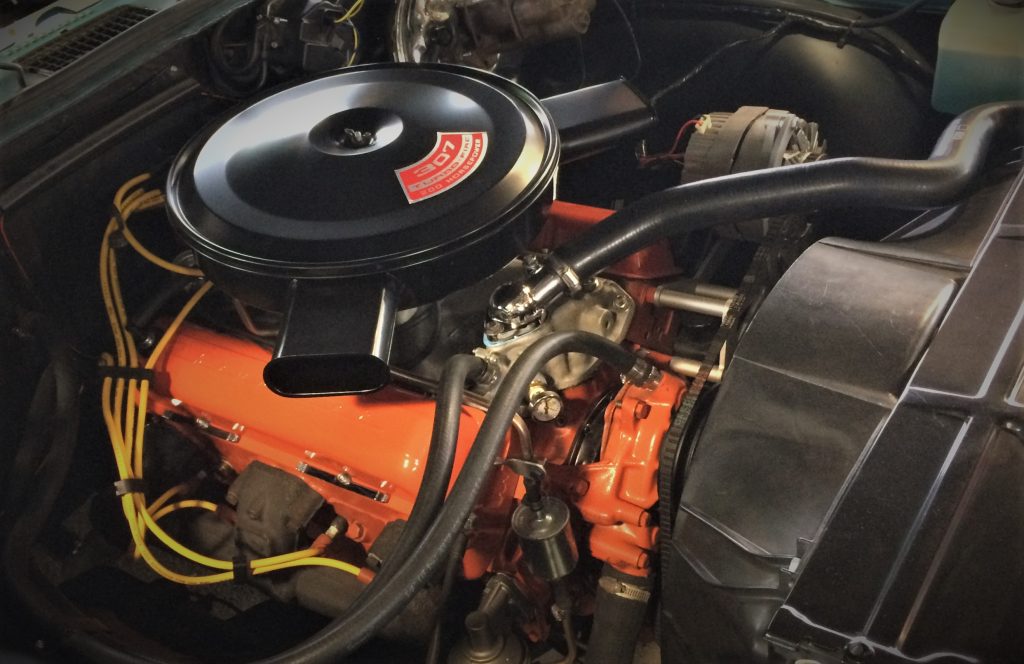
Q: I am in the process of rebuilding my small block Chevy and am looking for the formula to figure out the proper size carburetor. Do you know it? If so, would you please share that?
A: We do, and we will.
Carburetor CFM = (plannned rpm x cubic inches) / 3,456
For clarity, your carb CFM should equal your planned rpm multiplied by your engine’s cubic-inch displacement, and then divided by 3,456.
Important note: This formula assumes 100% volumetric efficiency and doesn’t take vehicle weight nor rear axle gear ratio into account. If you want to adjust for street or race use, multiply the formula result by .85 for a street car (85% volumetric efficiency), or 1.1 for racing (110% volumetric efficiency).
…
We’ve included this formula, along with 12 other key automotive formulas, in our 13 Key Automotive Formulas You Should Know post. Check it our for valuable information on compression ratio, rear gear ratio, and more. You can also find interactive calculators to help with your math.

Correct information is the most important single thing I know of when it comes to high Horsepower Engines! But it seems to be few and far between lately! Thanks for all you guys share with us, it’s greatly needed!
Pardon my ignorance but what exactly is planned rpm. Also,doing the posted formula I can safely say most older big block muscle cars on the road today are over carbureted. Averaging 750 to 800 when they should be 550 to 600 and even less if you consider the volumetric factor. According to the formula I should loose the 750 on my stock 440 and bolt on a 500 -550?
Hey Brian, good question. You can consider planned rpm the engine’s maximum safe operating rpm limit. Here’s another post that is a worthwhile read, regarding volumetric efficiency.
this sounds great
How is this formula effected by a four cylinder with independent throttle bottles? Just divide by 4?